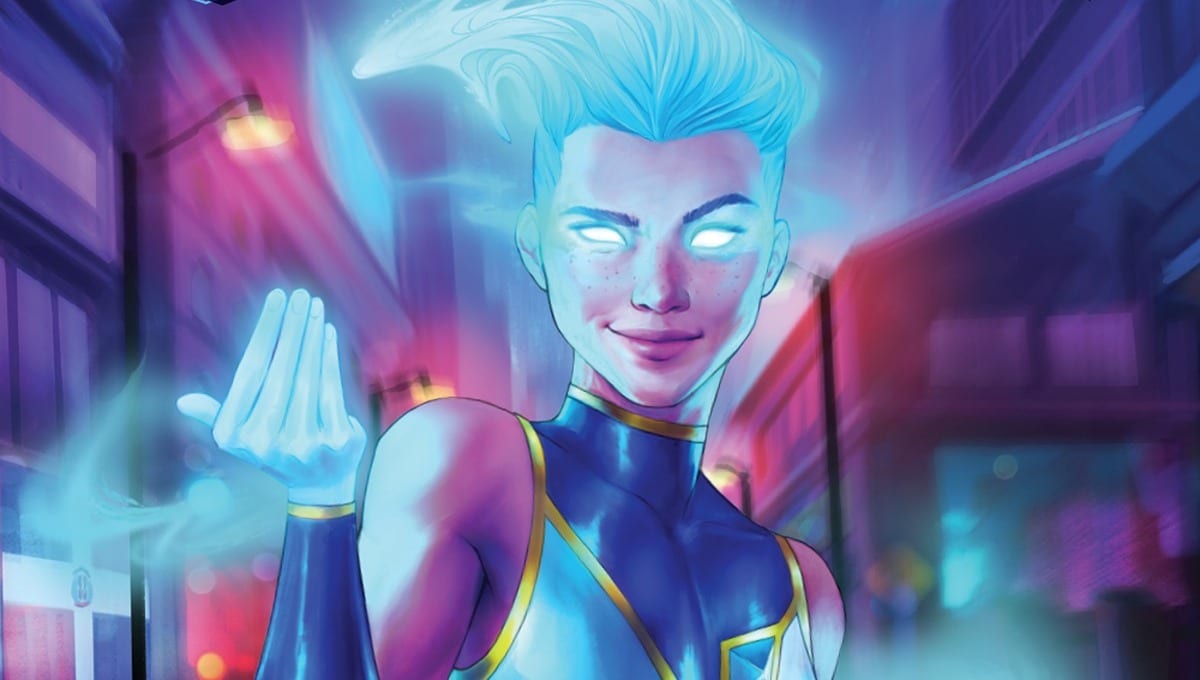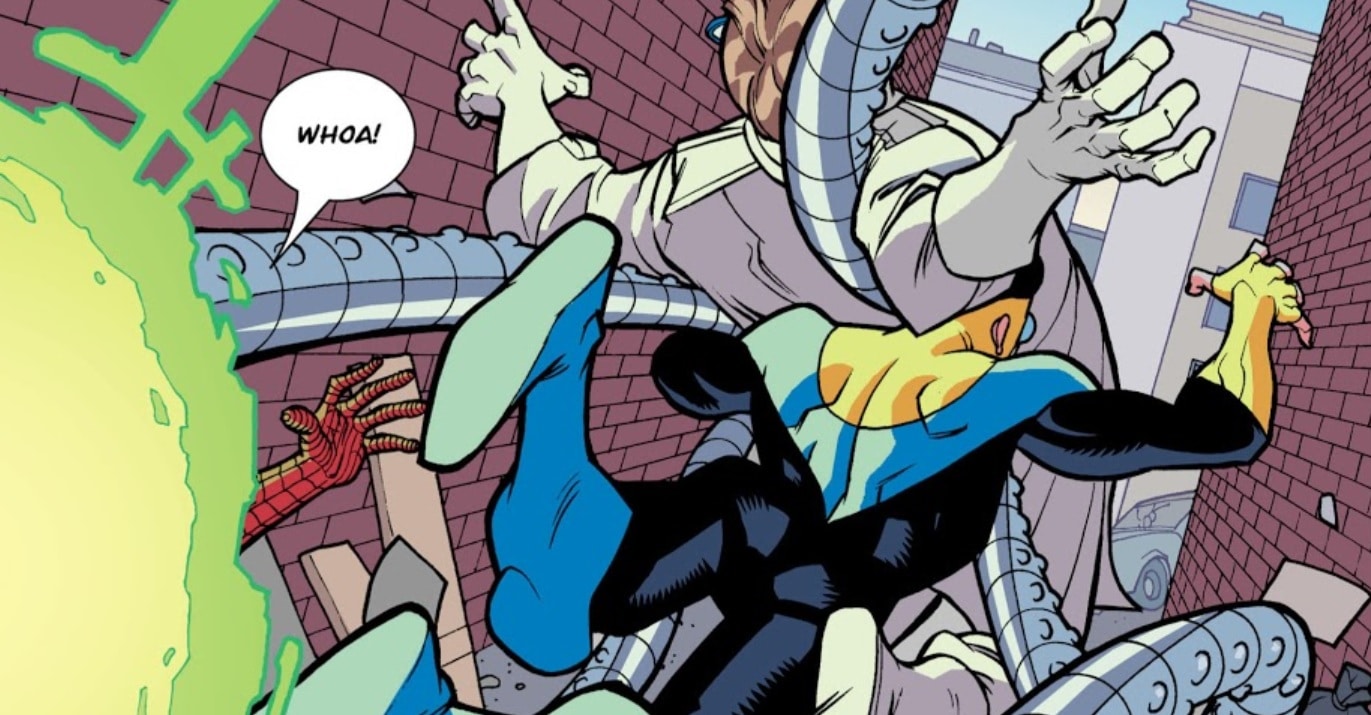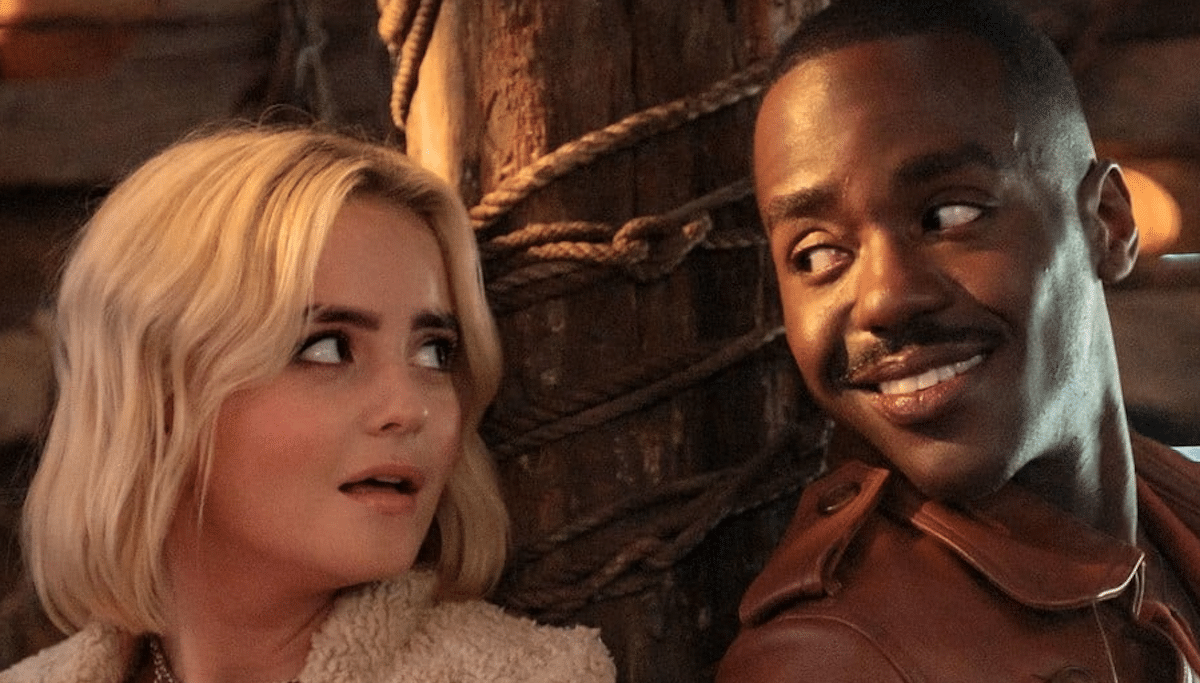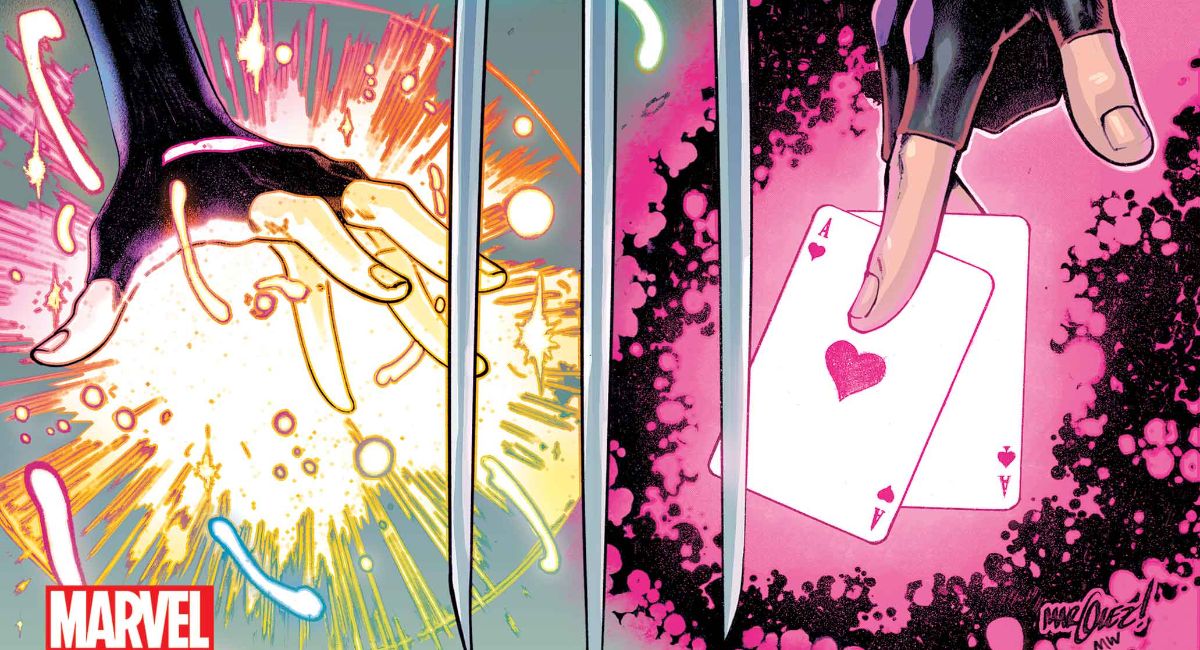The Beat Interview: Eric Stephenson ”Our industry is in the midst of some pretty amazing changes.”http://ift.tt/1mSEuG5
[Image Expo was held a few weeks ago and revealed a stunning line-up of new books by some of comics best, and it was the latest event in what has been a huge string of successes—artistic and financial— for the publisher. After a chart-topping 2013, the publisher seems set for just as a big a 2014—and they’re doing it offering creators a deal unparalleled by any other publisher. For anyone who believes creators are the driving force of comics, the success of Image has to be seen as a triumph.
The event wasn’t without some controversy, however. When offered a chance to interview Image Publisher Eric Stephenson, I didn’t want to shy away from those issues—I know Eric isn’t prone to mincing words, and as you can see see, he isn’t shy about stating his mind. Thanks to Eric for taking the time to address those issues and explore some of Image’s publisher goals. Thanks to Kat Salazar for setting up the interview.
Illustrations are taken from the books just announced.]
The Beat: Eric, first off, congratulations. In comparing 2012’s Diamond year-end figures with 2013’s, I see Image rose in both dollars and units. Do you have any other Image statistics for the year you’d like to share?
Stephenson: Well, you know, we debuted 50 all-new titles—not relaunches or revamps, but actual new material—over the course of 2013, and that’s a figure I’m really proud of. Our market share went up, both in terms of dollars and units, and we closed out the year with 8% in dollars and 8.49% in units. What that means for us internally, is that our dollars went up 20% over 2012’s numbers, and our units went up around 40%. It was a good year, but as always, there’s plenty more to do. There are always things to improve on, and the better things get, the more I see other things that need attention.
The Beat: It’s easy to see that Walking Dead and Saga had incredible years—was the growth mentioned above in these established properties or more across the board?
Stephenson: The Walking Dead and Saga did have a good year, but so did East of West, Jupiter’s Legacy, Fatale, The Manhattan Projects, Prophet, Chew, Sex Criminals, Pretty Deadly, Revival, and so on. Generally speaking, our comics and trades are doing better and better, and we enjoyed a very successful year with both formats. We’re launching books better than we have in some time, our line average is going up, and I think the growth we’re experiencing is just a really powerful statement about the benefits of supporting and nurturing new creativity.
The Beat: You set the tone for Image’s 2014 with the just concluded Image Expo—I know there was some controversy which we’ll get to in a minute. But overall, I know this was the third one, and the message at each has pretty much been everyone who is anyone is at Image now. Was there anything specific about this one that you think was different, even in terms of the mood?
Stephenson: I actually don’t look at the convention we put on in 2012 as the same thing. That was more of a straight convention format, with the very specific purpose of celebrating Image’s 20th anniversary, whereas the event we launched last July is more forward-looking in tone. Likewise, I think it would be a shame if the only message people took away from Image Expo is “everyone who is anyone is at Image now.” Absolutely, we want to highlight the amazing men and women we’re working with, but even more than that, we want to make people aware of where we’re at and where we’re going over the months to come. It’s easy to label things as “new” or “now,” but I’m a big fan of showing instead of simply telling. That was the thing that appealed to me most about doing these one-day media events when Robert Kirkman first suggested the idea, the notion that we could show people what Image is at that moment in time, whilst simultaneously giving a sneak peek at where we’re going.
The Beat: Last year’s Image Expo was just before Comic-Con—is there any chance you will do something similar this year?
Stephenson: Wow, you know… We just finished this one, and I think we’re still in the refractory period. It’s funny, though: When Robert was first trying to sell me on the whole Image Expo concept, he envisioned it as a quarterly event. I was like, “Are you out of your mind?!” and honestly, I think that probably colored a lot of my initial reaction to the idea, because as I’ve mentioned a few times, I wasn’t particularly into it at first. After putting on the anniversary convention in 2012, I gained such a huge respect for the men and women who organize all the wonderful cons we all go to every year, because it is a lot of work, a lot of hard work. Even doing something as intimate and on as limited a scale as the single day event we just wrapped up is a tremendous undertaking, and we do that ourselves. It’s the Image staff, doing everything themselves, in addition to all their other daily responsibilities, and this last time around, it was right after the holidays, so there was a lot of additional stress, due to holiday printing schedules and the like. It’s fun, and it’s tremendously satisfying to put on a successful event, but at the same time, it’s exhausting. I think it’s going to be a little bit before we reconvene on the future of Image Expo.
The Beat: Do you see Image Expo going on in the same format or are there ways you would like to change it?
Stephenson: I think we might add some light entertainment for the next one. Maybe bring in some jugglers or some mimes.
Or maybe we could get a house band.
Seriously, though… I think there’s always room for improvement, and there were things we did differently the second time that made it a far superior experience to the first, so I’m sure we’ll find other ways of tweaking our model for the event as we move forward.
The Beat: Now, getting to the controversy, even though it wasn’t really accurate either as far as Image staff or even Image creators go, there was a message sent via a photo that circulated that the creative line-up is mostly white men, a group that, to be fair, comics are currently over-represented in. You’ve spoken a lot about diversifying the line-up in the past…how do you respond to the current controversy?
Stephenson: We publish the best books submitted to us regardless of age, race, gender, sexual orientation, whatever. I think if you look at our output, that’s fairly obvious, even though I’d also add that it would be good to have even more diversity within our line-up. That’s not something you can force, though, and especially since our publishing slate is largely determined by material pitched to us, it’s something we have to be very careful about. I don’t think anyone wants to see some kind of quota system applied to comics, or for writers and artists to be hired solely based on their gender or race—that is not a workable solution on any level.
Also, I think people kind of take for granted how much comics have changed over the last 15, even 13 years ago. Comics fandom didn’t look as it does now when I was growing up, or even when I first started working in comics some 20 years back. You’ve been around even longer than I have, so I think you know what I’m talking about – comics has been very “dude heavy” for years upon years upon years, and to a large degree, I think that’s because we’ve had an industry dominated by two publishers who do a very specific type of comic book that has traditionally been geared toward a male audience. When content is less diverse, you have fewer opportunities to reach as broad a readership as possible, and I think the talent pool suffers under those circumstances.
The good news, though, is that our industry is in the midst of some pretty amazing changes. The audience is changing, the types of comics that can be successful are changing, the possibilities are changing. It’s not a fast process, but it’s very cool to be in the middle of it. Looking at the work Brian and Fiona are doing on Saga and how enthusiastic our female readership is about that book, or about what Matt and Chip are doing on Sex Criminals, or Kelly Sue and Emma on Pretty Deadly—there is not a doubt in my mind those books are more successful because they appeal to women. I think we’re cultivating a better readership for comics, and I think that’s absolutely essential to the long-term health of this business.
And the more varied our readership, the more varied the talent pool. Kieron Gillen made a great observation backstage at Image Expo, that the crowd at the Yerba Buena Center that day was very, very diverse, and I think that is the most important thing, really, because the more diverse readership we have, the more diverse the people breaking into comics will be in the long run.
The Beat: Image’s submission department at present is just you. Which is a big job for any one person, let alone running everything else at Image. Would you consider broadening it at all? I know you have David Brothers and Jennifer DeGuzman on staff, for instance. Do you need to be more proactive about who you bring in?
Stephenson: Well, first off, and I want to say this in as nice a way as possible, it’s really not a big job. It’s a high volume job, to be sure, but by and large, we’re not talking about material that requires a lot of attention. The overwhelming majority of the submissions we receive just aren’t professional quality work, and it doesn’t take a particularly long amount of time to figure that out. If something stands out, that’s the stuff I spend time on, and generally speaking, I don’t spend time on it alone. I show it to other people in the office and get their feedback. Just yesterday, I was talking to our PR & Marketing Coordinator Kat Salazar about a pitch for an all-ages book we received recently, and her input on that was what prompted me to give the book the green light.
Beyond that, though, I have to say, I’m a little offended by what you’re actually implying with your question, because it really seems like you’re casting aspersions on not just my character, but David’s and Jennifer’s as well. I mean, again, we’re looking for good material, and things like gender and race are not the criteria. It’s the quality of the work. On top of that, the submissions we receive don’t come with photos of the writers and artists, and while it’s easy enough to tell if someone is male or female by looking at his or her name on a cover letter, more often than not, names aren’t a solid indicator of someone’s ethnicity.
And really, it shouldn’t matter. I don’t judge people on their gender or their race or anything like that, and I don’t think people want to be judged on that basis. Everyone wants to be judged on who he or she is, and what he or she is capable of. I mean, we hired both David and Jennifer to work at Image specifically because I was impressed by their work—they were industry professionals we pursued for their respective jobs, not because of their race or their gender, but because of what we felt they would bring to the job.
The same goes for creators, and one of the unfortunate by-products of this whole conversation is that it makes some creators question why they’re being approached about work, which is, if I’m being completely frank, complete bullshit. It’s pretty fucked up that I could ask someone whose work I admire to pitch me something and be told in response, “Are you asking because I’m an Asian woman?” Similarly, someone made a joke recently that I was only asking her to pitch a book because Image needed to meet its gender quota. Both parties feel like shit in that scenario, and it’s really kind of inexcusable. No one should be made to feel that way. Everyone should be confident that they’ll be judged on their experience, their body of work, what they’re doing for comics, and I think forcing the issue with questions like yours trivializes not just the overall conversation about diversity in comics, but the contributions of the people involved.
The Beat: I was talking to Bob Fingerman earlier today for a podcast, and he’s very happy to be at Image, but he was joking about how 20 years ago if you told me that would happen he would have thought it was unlikely. Image has really broadened its scope in terms of what it publishes—and it’s wonderful to see great 90s comics like Stray Bullets and Minimum Wage comics back—but many of the books are thrillers, or SF or other genres, just by virtue of who you publish. Do you think Image will make any moves towards the “tumblr” culture of comics? I know you are publishing James Harvey, for instance.
Stephenson: Yeah, and I doubt James would view being lumped in with “tumblr culture” as a compliment, but who knows—maybe he’ll feel differently after we publish the first issue of Dope-Ass Animated GIFS.
I think this is a funny question, though, because there are two publishers that dominate this industry by doing nothing but superheroes, and yet you’re dismissing what Image does into “thrillers, SF or other genres,” to avoid recognizing the fact we actually do lots of different things. I mean, if you want to say we should be doing more non-genre material, fine, we can have that conversation, but we’re the ones actively trying to broaden our horizons here. Where are your questions about why all the other guys do are superheroes? Where are the questions about why so many publishers rely on funneling increasingly tired nostalgia comics into the market instead of generating new creativity? We’re the ones doing things like One-Trick Rip-Off and Age of Bronze and Minimum Wage and Multiple Warheads and Not My Bag and Krishna. We just did a fantastic art book with designer and illustrator Rian Hughes, Soho Dives, Soho Divas, and you know, we’re constantly on the lookout for things that are different. There’s a young woman we’re working with on a book that will be pretty different from everything we’ve ever published, equal parts travelogue and autobiography, and we’ll do more things like that as they come along.
There’s always more that can be done, obviously, but you know, it doesn’t happen overnight. Bob’s right: Image was pretty different 20 years ago. Times change. People change. I think one of Image’s greatest strengths has always been that we’re never the same thing. Year-to-year, month-to-month, we’re always moving forward, and that’s something we’re all very proud of, because yeah—on one hand, you’re going to get The Walking Dead or Saga, but on the other, yes—we’re doing comics with Bob Fingerman. And we’re doing comics with David Lapham. And we’re going to be doing comics with James Harvey. Some of my favorite stuff—Scott Pilgrim, Optic Nerve, Hate, Strangers In Paradise—I’d love to be putting books like that out. Or stuff that I can’t even imagine. There are types of comics no one has even come up with yet, and it would be amazing to get pitched something like that. I’m up for anything. Image is up for anything. Image can be anything.
The Beat: Image Comics ruled the graphic novel charts like a boss in 2013, thanks to Walking Dead and Saga, but the market itself is a little dicey with B&N the biggest chain left and lots of questions about it. Do you have any specific goals for the book channel in 2014?
Stephenson: I think we could be doing more to elevate our presence in smaller bookstores, and one of my goals for 2014 is figuring out how to build more support there. Jennifer De Guzman is back from maternity leave here in a bit, and she’s shifting from PR & Marketing over to trade book sales, and I think that’s going to make a big difference. Jen has a lot of experience in that area, and I think making that her primary focus will help us broaden our reach outside of Amazon and Barnes & Noble. Comics are virtually the only growing category in print publishing right now, and even after all the success we’ve had getting our titles into bookstores over the last decade or so, I think there’s a lot more we could be doing.
The Beat: Are there other channels that you are having success in? Marvel kind of surprised some people by revealing that they hadn’t been in mass market for years and no one had noticed. I”m not really familiar with Image’s representation at mass market — is this an ongoing outlet for your books?
Stephenson: By mass market, you mean the newsstand market? Selling comic books on newsstands and in bookstores, things like that? No—that hasn’t been a priority for years, something we started backing away from when Jim Valentino was still Publisher. And honestly, as far as the Marvel announcement goes, I’m surprised you’re surprised, or that anyone was surprised. That market has been dead for years. The general public seems happy to buy trades and graphic novels in bookstores, but generally speaking, all available evidence indicates they couldn’t care less about buying individual comics.
The other channel we’re having success in, though, is digital comics, and if you want to talk about mass markets—that’s your mass market. Regardless what happens to print or to comic book stores, digital represents the future of the mass market, and it seems almost silly to pretend otherwise.
The Beat: Similarly in the comics shop channel, what do you see as the biggest challenges there moving forward?
Stephenson: Well, I think the Direct Market needs more progressive shops. I suspect comic book shops, like indie bookstores and vinyl record stores, will be around for a good long while, but not if they’re run by guys who only fucking care about Aquaman and Silver Surfer.
The Beat: When I do my end of year 2014 survey, what do you hope people are saying about Image Comics?
Stephenson: I just hope they’re talking about the books, because at the end of the day, that’s all that matters. We’re not trying to shove everything we do down every single reader’s throat—we want people to find the material that appeals to them, and we want them to love it. I want people to be talking about how the new Minimum Wage series is Bob Fingerman’s best work ever, or how excited they are to have Stray Bullets back in their lives again. I mean—can you believe it? Stray Bullets is back! I just got to read issue 41! I’m fucking pinching myself over here! But you know, we’re doing so much good stuff, and that’s all thanks to the creators, so that’s what I want people to be talking about.
#call_to_action h4{padding:0px 5px;}








